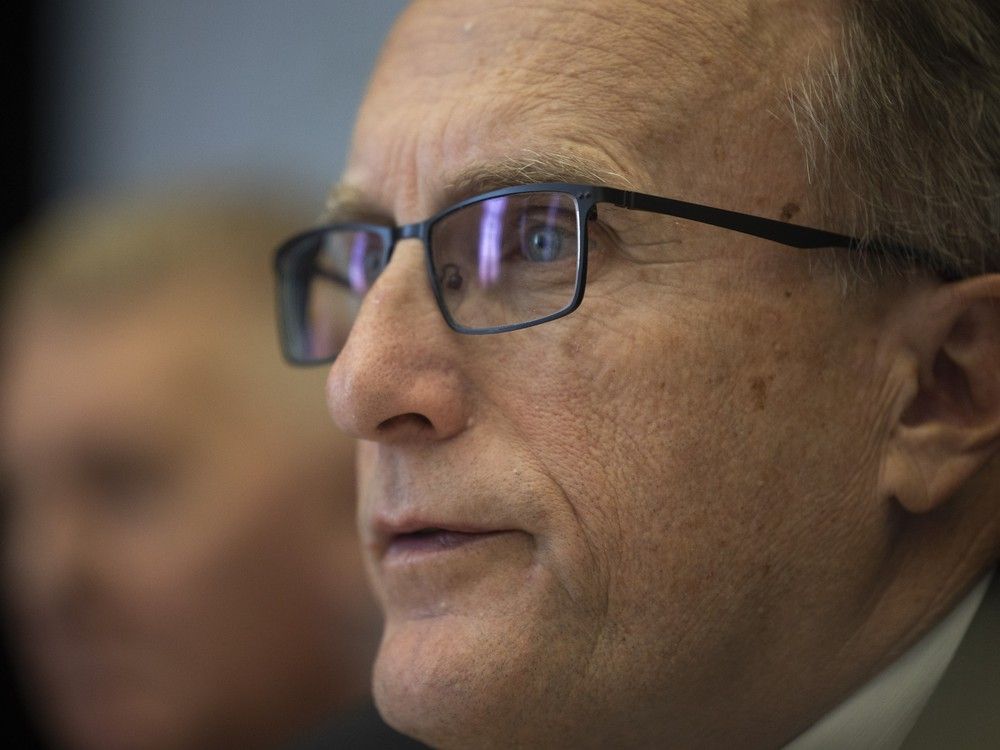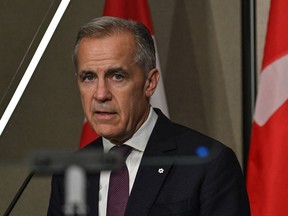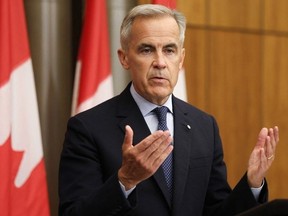Business
Saskatchewan Leaders React to Federal Fast-Track Projects List

The Saskatchewan government has responded to the federal government’s announcement of five major projects proposed for fast-track approval, revealing a mix of optimism and disappointment. Prime Minister Mark Carney introduced these projects, which include the McIlvenna Bay copper and zinc mine, during a recent press conference, stating they represent viable initiatives “in the national interest.” The newly established major projects office aims to expedite these developments.
Saskatchewan’s Finance Minister, Donna Harpauer, expressed cautious approval, highlighting the inclusion of the McIlvenna Bay project but noting that many expected a broader range of initiatives. “While we are pleased to see some projects selected, including the Foran Copper Mine in Saskatchewan, I think most Canadians were expecting a more ambitious list of projects given the prime minister’s promise to build ‘at a speed not seen in generations,’” Harpauer stated.
A significant concern raised by Harpauer is the absence of uranium projects from the fast-track list, particularly as three projects in Saskatchewan are poised for immediate advancement. She urged the federal government to address this issue promptly. Furthermore, Harpauer criticized the lack of approved pipeline projects, which she believes underscores the uncertainties of the current regulatory environment. “Saskatchewan’s position remains the same — our country needs all economic projects to go forward if Canada wants to be the strongest economy in the G7 — not just the projects selected by politicians in Ottawa,” she added.
Opposition Leader Carla Beck also commented on the announcement, voicing her support for the McIlvenna Bay project while expressing frustration over the limited scope of the federal government’s initiatives. Beck acknowledged the importance of the projects selected for Saskatchewan’s mining sector and port investments but lamented the omission of critical infrastructure projects related to pipelines, power generation, and rail capacity. “Our team has been calling on all levels of government to prioritize all types of trade-enabling infrastructure, and I urge the federal government to ensure there will be urgent progress on these vital projects,” Beck said.
The McIlvenna Bay project, located in northeastern Saskatchewan, is designed to extract polymetallic critical minerals. Covering an area of 20,900 hectares, the site is situated in the Flin Flon Greenstone Belt, a region noted for its deposits of copper, zinc, and other essential minerals. After reaching the feasibility stage in 2022, construction is set to commence in July 2024, with expectations of commercial production beginning by mid-2026.
Foran Mining Corp., which fully owns the project, estimates the first phase will cost approximately CAN$1 billion. According to the company, the mine is projected to produce up to 4,200 tonnes of copper and zinc daily. It is also being touted as Canada’s first net-zero copper mining project, utilizing power from two local hydroelectric dams to reduce emissions, along with a fleet of underground electric vehicles for low-emission transportation.
Additionally, Foran Mining has been approved for up to $70 million in transferable royalty tax credits through the Saskatchewan Critical Minerals Processing Investment Incentive. This initiative, launched last year, aims to support the development of critical minerals in the province.
The mine is expected to create 400 full-time jobs and will contribute to economic development in Indigenous communities. The copper extracted will also be smelted in Quebec, further connecting Saskatchewan’s resources to broader markets.
As the landscape of major infrastructure projects continues to evolve, the responses from Saskatchewan’s political leaders underscore the ongoing dialogue about balancing regional needs with national priorities.
-

 World3 months ago
World3 months agoScientists Unearth Ancient Antarctic Ice to Unlock Climate Secrets
-

 Entertainment4 months ago
Entertainment4 months agoTrump and McCormick to Announce $70 Billion Energy Investments
-

 Lifestyle3 months ago
Lifestyle3 months agoTransLink Launches Food Truck Program to Boost Revenue in Vancouver
-

 Science4 months ago
Science4 months agoFour Astronauts Return to Earth After International Space Station Mission
-

 Technology2 months ago
Technology2 months agoApple Notes Enhances Functionality with Markdown Support in macOS 26
-

 Top Stories3 weeks ago
Top Stories3 weeks agoUrgent Update: Fatal Crash on Highway 99 Claims Life of Pitt Meadows Man
-

 Sports4 months ago
Sports4 months agoSearch Underway for Missing Hunter Amid Hokkaido Bear Emergency
-

 Politics3 months ago
Politics3 months agoUkrainian Tennis Star Elina Svitolina Faces Death Threats Online
-

 Technology4 months ago
Technology4 months agoFrosthaven Launches Early Access on July 31, 2025
-

 Politics3 months ago
Politics3 months agoCarney Engages First Nations Leaders at Development Law Summit
-

 Entertainment3 months ago
Entertainment3 months agoCalgary Theatre Troupe Revives Magic at Winnipeg Fringe Festival
-

 Top Stories6 days ago
Top Stories6 days agoFamily Remembers Beverley Rowbotham 25 Years After Murder




















